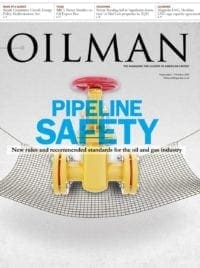Someone once told me your enemies are not your competitors down the street underbidding you. Your enemies are your employees. Employees, like anyone else, are habitual, and most of the time, they create unintended circumstances – which cost you money. Of course, this is a slow process, and like a bad relationship, you don’t see the red flags until it’s too late.
What you know, and what you don’t know
Ok, so you’re thinking to yourself, my employees know their jobs, they’re good and dependable and it took me a long time to get this team together, so why change? Fair enough. Then why is it that when things slow down, the first thing you think of is layoffs and selling assets? Because you’re conditioned to, and it’s the way things have always been done. Sure your employees know their jobs, but only the way they want to.
They’re conditioned to never entertain change. This doesn’t mean it is the most efficient way they could be doing their jobs, and the best way for your business to grow. More important than employees knowing their jobs is an employee who knows the most efficient way to get the job done and utilizing any tool that is available. It also means having the will to accept change if need be. That factor alone separates an employee who is just there for a paycheck from the one who actually cares about what you built.
Where the problem lies
In the oilfields, many processes have not changed, because they have always been done a certain way. Take, for instance, the paper service ticket that the company man has to have and sign, and then you have to somehow keep several other copies. Not only that, but it is a driver or a yard guy that fills it out. It has to come back to dispatch, get approved, and be entered into an excel sheet. All done? No. Next, we move all these tickets over to accounting for more approval and pricing checks.
This process might be a few different people looking at it and making changes. But wait, the company man might not have been at the job site that day, and your sales guys still needs that relationship. Let’s put everything on hold until we can get to him first. This Mickey Mouse game goes on in more oilfield service companies than any other industry, and it hasn’t changed since 1910.
You spend more time chasing down yard guys and drivers for inaccurate, illegible and/or lost tickets. You spend more money having three to four employees in your back office doing what one person could do, and mistakes are still made. It’s hard enough to get paid under 90 days from an oil company, let alone turning in an invoice that might have one mistake, and add a collection person on top of that to open up all your files to look for the ticket and signature from over a month ago. Are you kidding?
It’s 2015; get it together
So you feel you have advanced your business process by adding an accounting program, a shop maintenance program, and an HR/document file program, and teaching your dispatch guys to learn the latest and greatest excel worksheets.
Great; that’s still several different programs you have to access in order to build a report and view real-time data (which you can’t) in order to make sure things are running smoothly. The other problem is that if some of your staff goes on vacation, can the other have access to and understand each program? Maybe you haven’t implemented anything by using the same old excuse: “Oh, my employees aren’t technical people, and therefore could never learn those programs.”
Right, but they can work an iPhone 6 if you dropped $600 on it for them. First, you need a program that is built for your industry and addresses the problems of inefficacies immediately. Next you need it to be consolidated, user friendly and accessible from anywhere. And finally, no matter how long your employees have worked for you, and no matter how much you love them, you can’t allow them to dictate the change (or lack of change) in your company.
Cleaning up the process, and starting cutting overhead while retaining the same or more revenue is on you. Their job is to back you up. I didn’t start working for the company I currently work for because I needed a job. I started working for them because I believed that there was a solution for this old-school way of doing things and a needed change.










